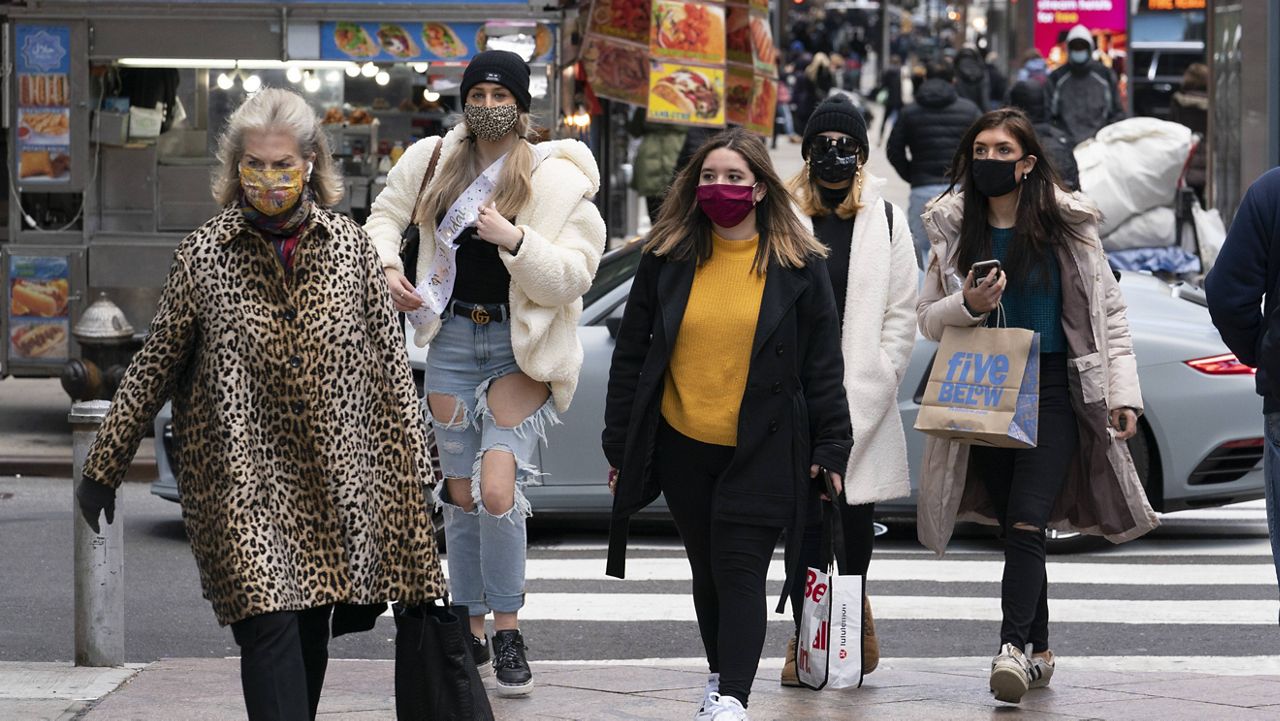Two separate teams of researchers have detected a new coronavirus variant in New York City that has troubling similarities to the strain discovered in South Africa and believed to be more resistant to some vaccines.
What You Need To Know
- Researchers with Caltech and Columbia University separately discovered a new coronavirus variant in New York City that has troubling similarities to the strain discovered in South Africa
- They say their main concern is that the variant contains a mutation in one area of the virus’ spike protein, called E484K, which also has been seen in the South African strain
- The E484K mutation is believed to weaken the body’s immune response to the virus, making vaccines that are currently available less effective
- Dr. David Ho, an infectious disease expert who led the Columbia study, said the new variant is surging over the past few weeks
The variant, known as B.1.526, was found by scientists at the California Institute of Technology and Columbia University. Columbia’s research has not yet been published. A pre-print version of the Caltech study was posted online Tuesday. Neither study has been peer reviewed.
The Caltech researchers discovered the rise in the variant, concentrated in the New York area, by scanning for mutations in an online database used by scientists around the world. The variant first appeared in samples in November, and by February it accounted for about a quarter of the cases in New York that were sequenced and uploaded to the database, the study said.
Columbia University, meanwhile, sequenced 1,142 tests from patients at their medical center and found that 12% of them had been infected with the variant.
Researchers say their main concern is that the variant contains a mutation in one area of the virus’ spike protein, called E484K, which also has been seen in the South African strain. The E484K mutation is believed to weaken the body’s immune response to the virus, making vaccines that are currently available less effective.
Dr. David Ho, an infectious disease expert who led the Columbia study, told CNN that the new variant appears to be homegrown and is surging over the past few weeks. He said he is concerned it could become more prevalent than earlier forms of the virus. “However,” he added, “we don't have enough data to firm up this point now."
E484K mutations have developed independently in variants all over the world, a process known as convergent evolution, indicating the change offers the virus a significant advantage.
Last month, Ho and his colleagues reported that the monoclonal antibody treatment developed by Eli Lilly and one of the two monoclonal antibodies used in a cocktail treatment made by Regeneron were powerless against the South African variant.
Patients with the New York COVID-19 variant were six years older on average and were more likely to have been hospitalized, the Columbia researchers found, according to The New York Times.
There is no evidence to suggest the virus has changed enough to entirely evade the protection of existing vaccines, but studies show some vaccines are not as effective against the South African variant as they are against other strains.
In a press conference Thursday, advisers to NYC Mayor Bill de Blasio said that there is no evidence the variant is concentrated in specific parts of the city and variant science is less established, but it still bears watching.
"We need to just consider this a variant of interest, something that's interesting that we need to follow and track,” said Dr. Jay Varma, a senior public health adviser to Mayor Bill de Blasio. "But it doesn't change anything about our public health concern. We need more data and studies to understand that."
"Until there is evidence that a variant is not handled well by vaccine, for example, or a variant has different impacts, we shouldn't assume the worst," de Blasio added. "We should say we need the full truth, we need the facts."
Pharmaceutical companies are already working to adjust to the evolving virus. Moderna announced Wednesday that it has shipped doses of its variant-specific booster shot to the National Institutes of Health for clinical trials. And Pfizer said Thursday it is studying a third booster shot for its vaccine to offer better protection against variants.
The single-dose vaccine from Johnson & Johnson, which is seeking emergency use authorization from the Food and Drug Administration this week, was less effective at preventing symptomatic COVID-19 cases in South Africa, but it was still highly effective at preventing severe illness there, trial data show.



